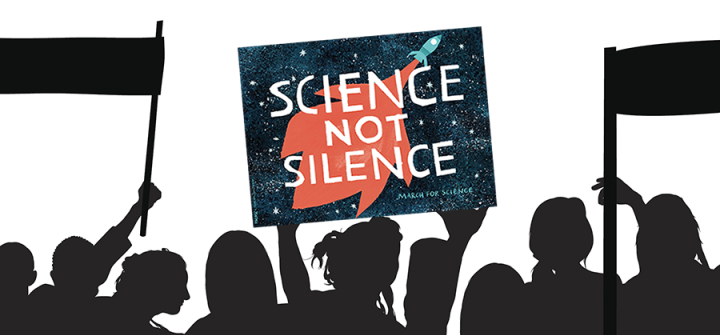Let the Marching Begin
This April 22, there will be a March for Science in Washington, DC. In fact, there will be 429 marches to support science on that day across the world. This unprecedented movement grew from the momentum of the Women’s March held this past January and the increasing sentiment that we, scientists and non-scientists, should show strong for support what we be believe in—science.
Why March?
As scientists, we tend to remain out of the political fray, guided by the perception that science should not be politicized or political. It is the exploration of evidence to determine the truth. Policies to help, improve, and protect our citizens should be made based on scientific evidence and what we know about how these policies will impact the people.
Recently, sadly, there has been a growing sentiment that expertise is just an opinion. Scientific data to support policies surrounding climate change, for example, are being pulled from freely accessible websites and many fear that these data are being lost or worse, destroyed. And while social media and the Internet have improved communication and the dissemination of information, they have also facilitated the distribution of misinformation and downright lies to further a personal agenda. The time to stay quiet and let misinformation and disinformation flow, while trampling scientific evidence, has passed. Lack of education and knowledge doesn’t improve lives, it diminishes them.
So why am I marching?
I am marching because I support science. I support gathering evidence, analyzing it though peer review, accepting the outcomes (even when the results are not what I wanted), and building a better world based on that evidence. I believe our lives are enriched by science and technology, and therefore it should be embraced. Science touches everyone’s lives in many ways. While some ways are overt and others are subtle, science is for everyone and engages everyone.
What happens after the March?
The March is one day. Support for science should not stop at the end of that day. The true impact of supporting science will be by becoming involved within the community so that scientists’ voices are heard.
To change policy and change a culture, we have to show up. As part of a society and a democracy, it is our civic duty to participate and engage. This means talking to neighbors, participating in local town hall meetings, providing data when new local policies are discussed, working with our local leaders, engaging in social media, and, yes, marching on Washington. How will things change if we don’t open our mouths or mobilize to march to support science and show how science impacts the world?
Judy Keen, PhD, graduated from the Johns Hopkins Bloomberg School of Public Health, Department of Environmental Science. Currently, she works in science policy to help support cancer researchers. She also blogs about science and careers in science.
Join the thousands of subscribers who rely on Global Health NOW summaries and exclusive articles for the latest public health news. Sign up for our free weekday enewsletter, and please share the link with friends and colleagues: Subscribe to GHN
iStock Illustration featuring March for Science poster designed by Penelope Dullaghan




